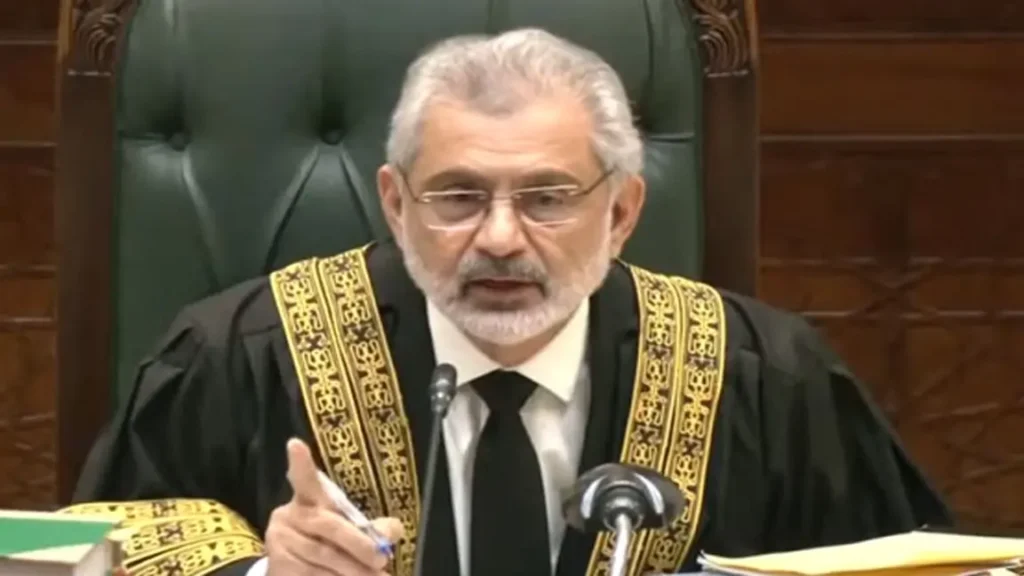ISLAMABAD: On Friday, the Supreme Court of Pakistan designated the murder case of former Prime Minister Zulfikar Ali Bhutto for the presidential reference hearing. The nine-member bench of the SCP, led by Chief Justice Qazi Faiz Isa, is scheduled to preside over the case on February 20.
Other bench members include Justice Sardar Tariq Masood, Justice Mansoor Ali Shah, Justice Yahya Afridi, Justice Aminuddin Khan, and Justice Jamal Khan Mandukhel. Additionally, Justice Muhammad Ali Mazhar, Justice Hasan Azhar Rizvi, and Justice Musarrat Hilali are also members of this comprehensive bench. In preparation for the hearing, the apex court had previously solicited written arguments from judicial assistants.
In 2011, then-President Asif Ali Zardari filed a reference against the court-ordered execution of Zulfikar Ali Bhutto. The case has undergone a series of hearings, with the first five conducted by an 11-member larger bench under former Chief Justice Iftikhar Chaudhary.
The historical context of Bhutto’s execution is rooted in the charismatic leader’s government being ousted by General Zia-ul-Haq in 1977, leading to a controversial trial and eventual execution. The current reference, filed in 2011 under Article 186 of the Constitution of Pakistan, resurfaced during a hearing on December 12, 2023, as a nine-member Supreme Court bench resumed consideration.
The reference is centered around Chief Justice Naseem Hasan Shah’s assertion that the trial bench was influenced by the Zia-ul-Haq government. Article 186 empowers the President to seek the Supreme Court’s opinion on matters of public importance.

During recent proceedings, Justice Mansoor Ali Shah queried the legal question in the reference and whether the court should comment on a judge’s interview involved in the verdict against Bhutto. Chief Justice Isa emphasized the importance of even one judge’s opinion, expressing the court’s commitment to upholding the dignity and the integrity of the law. The court is scrutinizing whether the Supreme Court, the prosecution, or the martial law administrator at the time bears responsibility.
Amicus curiae Makhdoom Ali Khan highlighted that the basis of the Bhutto presidential reference was an interview by former Chief Justice Naseem Hasan Shah. The court directed the unsealing of the interview sent by the concerned channel.


